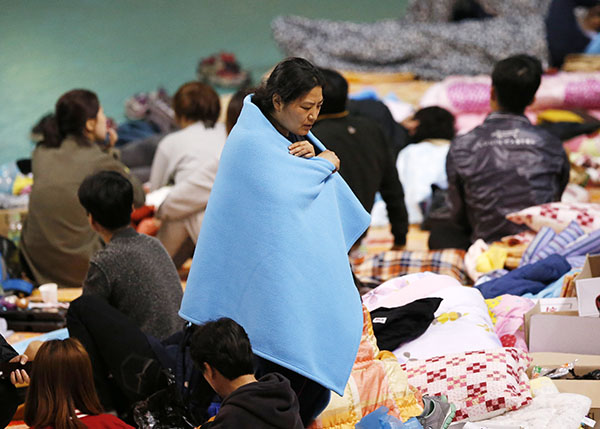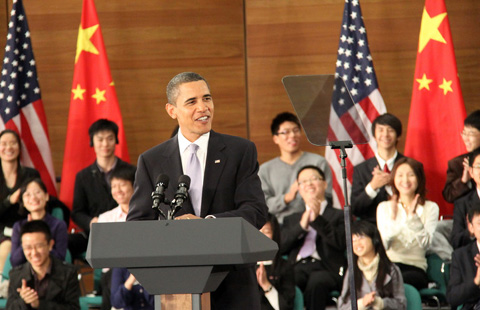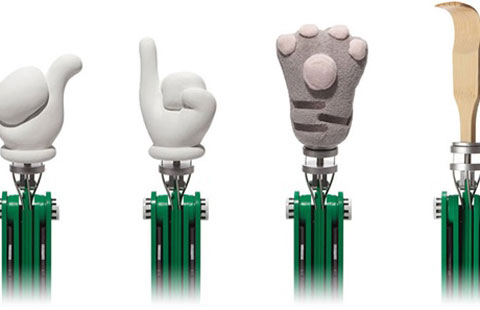Chinese mother mourns dead son, S. Korean president calls ferry disaster 'murder'
(Xinhua) Updated: 2014-04-22 20:12
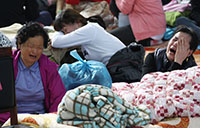 |
| Fearful relatives vent their outrage |
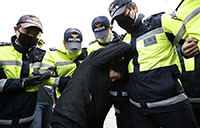 |
| Angry relatives clash with S.Korea police |
JINDO, South Korea - The relatives of the Chinese passengers aboard a capsized South Korean ferry were battered on Tuesday, as rescuers pulled out more bodies from the ill-fated ship.
"How could my child die like this?" the grieving mother of a male Chinese passenger who was confirmed dead murmured to herself again and again.
The bodies of her son and another Chinese male were recovered on Monday, more than 100 hours after the 6,825-ton "Sewol" submerged in icy water with a total of 476 passengers and crew aboard off South Korea's southwest coast on April 16.
In what could be South Korea's worst maritime disaster in two decades, at least 108 people have died, 194 others were still missing as of Tuesday afternoon.
Coast guards carried the bodies covered in white cloth from a boat to a tent on Jindo Island for identification, where their family members were waiting in anguish.
Although 174 people were rescued shortly after the ship sank, the chances of finding more survivors are becoming increasingly slim seven days after the disaster.
Chinese victims
The two Chinese men were identified according to their ID cards. One of them was found in waters where the ferry sank, the other was recovered inside the ship, South Korea's coast guard said on Monday.
"Yes, that's my boy," the mother, who preferred not to be named, burst into tears at the sight of her son lying still on a stretch and wearing the same coat as he boarded the ill-fated ship.
The mother had received a text message from her son saying the ship was delayed due to thick fog.
The ship, en route from the port of Incheon to the traditional honeymoon island of Jeju, departed some two and a half hours later than scheduled.
The Chinese embassy has confirmed that four Chinese nationals -- two men, a woman and a schoolgirl -- were among the missing passengers aboard the ship.
Parents of the missing teenage girl also confirmed the news, but declined to say whether she has gotten South Korean citizenship.
Passengers aboard the ship included 325 students and 15 teachers from Danwon High School in Ansan, a Seoul suburb, which, according to the Chinese embassy, is home to many Chinese nationals.
In recent years, a growing number of Chinese arrived in South Korea, as Seoul eased visa restrictions and devised favorable policies to attract Chinese tourists.
In 2013 alone, 3.92 million Chinese visited South Korea, overtaking Japan for the first time. The Chinese words "youke," meaning visitors, was even included in Korean vocabulary.
